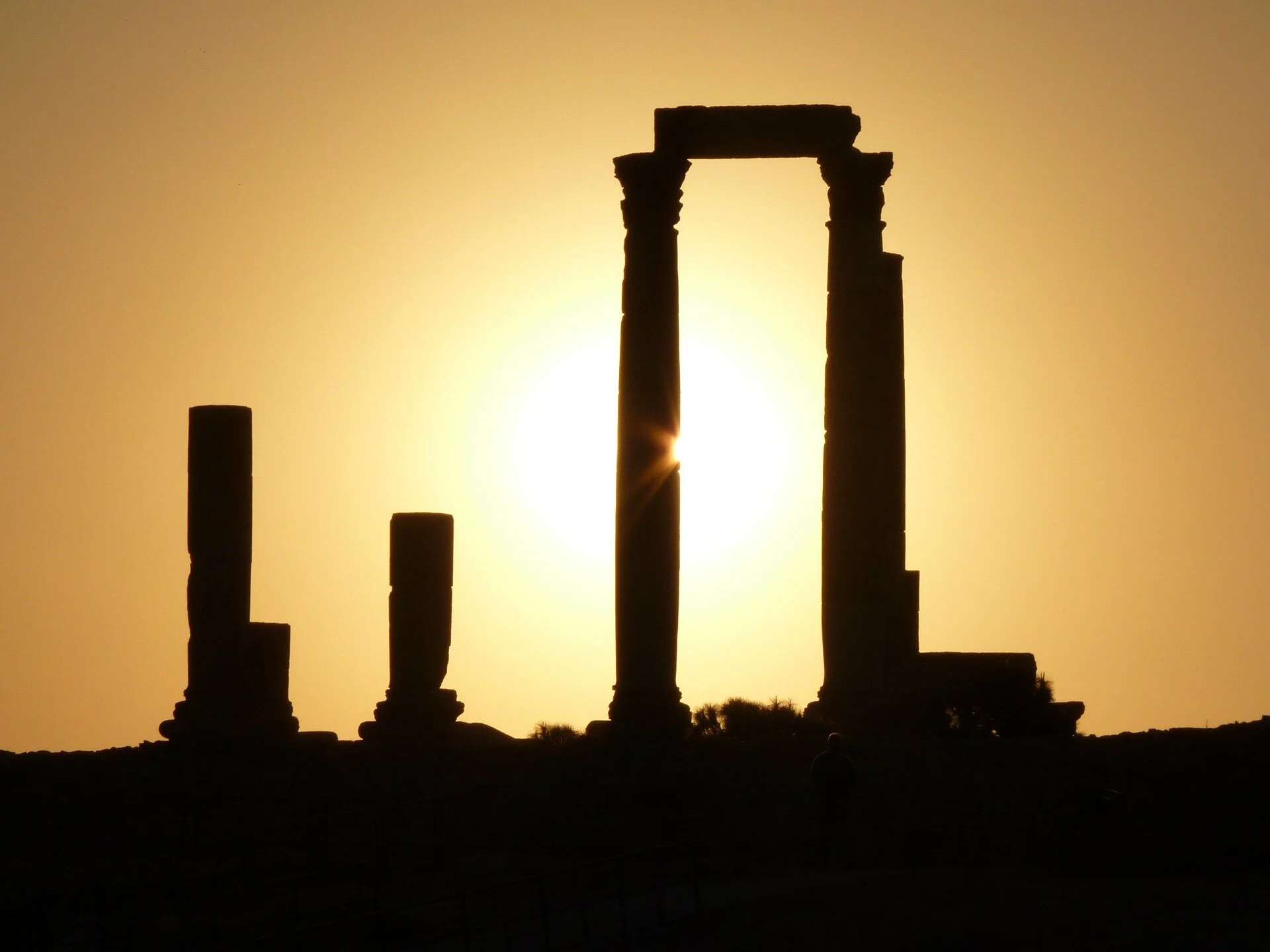Constitution of the Athenians by Aristotle: Even in Ancient Greece, Research Assistants Get No Credit
What does Aristotle’s Constitution of the Athenians have to do with The Hitchhiker’s Guide to the Galaxy by Douglas Adams? Keep reading and find out below!
(Papyrus of Constitution of the Athenians by Aristotle—or his student)
Even though I have considered myself to be a philosopher since my first semester of college back in the fall of 1996 when I took my first philosophy class under Thomas Warren (RIP) at Solano Community College onward, and even though I’ve studied and taught philosophy now for almost 25 years, I’ve only recently become aware of a lost work by Aristotle that was recovered in 1879: Aristotle’s Constitution of the Athenians.
Constitution of the Athenians is an interesting work, quite unlike other known works of Aristotle. Most of the works we have from Aristotle were not intended for publication, instead being his lecture notes and teaching notes for use at his school, the Lyceum. Most of Aristotle’s published works, however, were lost, including around 200 philosophical treatises and a number of smaller works such as written accounts of the constitutions of various states in the ancient world, of which Constitution of the Athenians is but one.
It’s widely assumed that Constitution of the Athenians and the other lost Constitution works were research for Aristotle’s Politics. In fact, Constitution of the Athenians reads more like a history than like a work of philosophy, having very little in the way of philosophical argument or conclusions. This means that it is very difficult to establish the authorship of Constitution of the Athenians with certainty, as it contains very little evidence of Aristotle’s signature philosophical style. It’s no accident then that Constitution of the Athenians has been of greater interest to historians of Ancient Greece than to philosophers since its discovery/recovery.
Since such, then, was the organization of the constitution, and the many were in slavery to the few, the people rose against the upper class. The strife was keen, and for a long time the two parties were ranged in hostile camps against one another, till at last, by common consent, they appointed Solon to be mediator and Archon, and committed the whole constitution to his hands. (Aristotle, The Athenian Constitution)
Many scholars believe that Constitution of the Athenians, along with Aristotle’s other Constitution works, were not actually written by Aristotle himself but instead by one of his students at the Lyceum. This makes sense, and in fact mirrors how we often (too often really!) think of research today. It’s quite plausible that Aristotle’s Lyceum students were sent out to do research for Aristotle and gather historical information about the history of the constitutions of various ancient civilizations while Aristotle himself focused on his larger works, including the synthesis of the Constitution histories into his Politics and other philosophical works, in an ancient foreshadowing of the relationship between well-known modern university professors and their lowly graduate students who perform the unglamorous but necessary grunt-work of academic research.
Today, Aristotle’s name is emblazoned proudly across the cover of the published versions of Constitution of the Athenians, and this short work resides, however much in the shadows, alongside Aristotle’s other known works, just as the well-known university professors of today often get the name credit for published research. At least today many professors do actually make an effort to include name credit, if only in the form of a footnote, for those beneath them, those forgotten graduate students and research assistants upon whose backs their professors stand in the spotlight and take all the glory.
I can’t help but feel sorry for those lowly students of Aristotle whose names are lost, if not to history itself then certainly to popular memory. I can picture some such student toiling away on Constitution of the Athenians now rolling over in his grave at the sight of Aristotle’s name plastered on the work for which the student spent untold hours researching and writing. Yet, despite the fact that scholars question the authorship of Constitution of the Athenians, having Aristotle’s name on the cover makes the book sell rather better—a bit like The Hitchhiker’s Guide to the Galaxy, which sells rather better than the Encyclopedia Galactica in Douglas Adams’s novel of the same name:
Here’s what the Encyclopedia Galactica has to say about alcohol. It says that alcohol is a colorless volatile liquid formed by the fermentation of sugars and also notes its intoxicating effect on certain carbon-based life forms. The Hitchhiker’s Guide to the Galaxy also mentions alcohol. It says that the best drink in existence is the Pan Galactic Gargle Blaster. It says that the effect of drinking a Pan Galactic Gargle Blaster is like having your brains smashed out by a slice of lemon wrapped round a large gold brick. The Guide also tells you on which planets the best Pan Galactic Gargle Blasters are mixed, how much you can expect to pay for one and what voluntary organizations exist to help you rehabilitate afterward. The Guide even tells you how you can mix one yourself. Take the juice from one bottle of the Ol’ Janx Spirit, it says. Pour into it one measure of water from the seas of Santraginus V—Oh, that Santraginean seawater, it says. Oh, those Santraginean fish! Allow three cubes of Arcturan Mega-gin to melt into the mixture (it must be properly iced or the benzine is lost). Allow four liters of Fallian marsh gas to bubble through it, in memory of all those happy bikers who have died of pleasure in the Marshes of Pallia. Over the back of a silver spoon float a measure of Qualactin Hypermint extract, redolent of all the heady odors of the dark Qualactin Zones, subtle, sweet and mystic. Drop in the tooth of an Algolian Suntiger. Watch it dissolve, spreading the fires of the Algolian Suns deep into the heart of the drink. Sprinkle Zamphuor. Add an olive. Drink…but…very carefully… The Hitchhiker’s Guide to the Galaxy sells rather better than the Encyclopedia Galactica. (Douglas Adams, The Hitchhiker’s Guide to the Galaxy)
Having Aristotle’s name on the cover of Constitution of the Athenians makes the book significantly more marketable, an overriding factor both in Aristotle’s day and especially in these postmodern times with small-t truth now being so inextricably linked to capital, profit, and salability (see The Postmodern Condition: A Report on Knowledge by Jean-François Lyotard).
In the end, does it really matter whether Aristotle or one of his students wrote Constitution of the Athenians? Either way, the recovered lost work is useful to historians in understanding the political structures and evolution of ancient Athenian society. And the work sheds little light on Aristotle’s overall philosophy, so the stakes for interpreting Aristotle’s overall philosophy are quite low. Would Aristotle himself have liked seeing his own name on the cover of a modern edition of Constitution of the Athenians? Or would he, too, cringe at the sight of his name being associated with a relatively minor work produced by the ancient equivalent of one of his graduate students?
When I first stumbled on Constitution of the Athenians, I was excited about the notion of a lost piece of Aristotle’s philosophy having been rediscovered relatively recently. Like so many others who have read Constitution of the Athenians, however, I was soon disappointed in its lack of substantive philosophical content, no matter how exciting the work may be to historians of Athens. But if Constitution of the Athenians doesn’t give us deeper insight into Aristotle’s overall philosophy, it does give us insight into Aristotle’s approach to research, on any topic, political and scientific alike. It reveals Aristotle’s predictably systematic way of researching the topics and material for the larger works, both those we know and love and those that are still lost. And it reveals a great deal about how Aristotle ran his Lyceum, if only by inference and by analogy to today’s dysfunctional, and often unethical, dynamic between well-known professor and lowly graduate student.
All in all, for a short work, Aristotle’s Constitution of the Athenians is still worth your time to read, if only because it fuels the fire of the imagination about the treasure trove of Aristotle’s other lost works, which perhaps one day will be recovered just as Constitution of the Athenians has been, questions of authorship aside. And it’s always interesting to read works by well-known philosophers that are outliers and aberrations in their overall body of work. Even if Constitution of the Athenians reveals little previously unknown about Aristotle’s worldview or philosophy, it can reveal a great deal about Aristotle the man and Aristotle the thinker, as outlier works so often do.
For Further Reading:
The Athenian Constitution by Aristotle
Politics by Aristotle
The Postmodern Condition: A Report on Knowledge by Jean-François Lyotard
The Ultimate Hitchhiker’s Guide to the Galaxy by Douglas Adams











